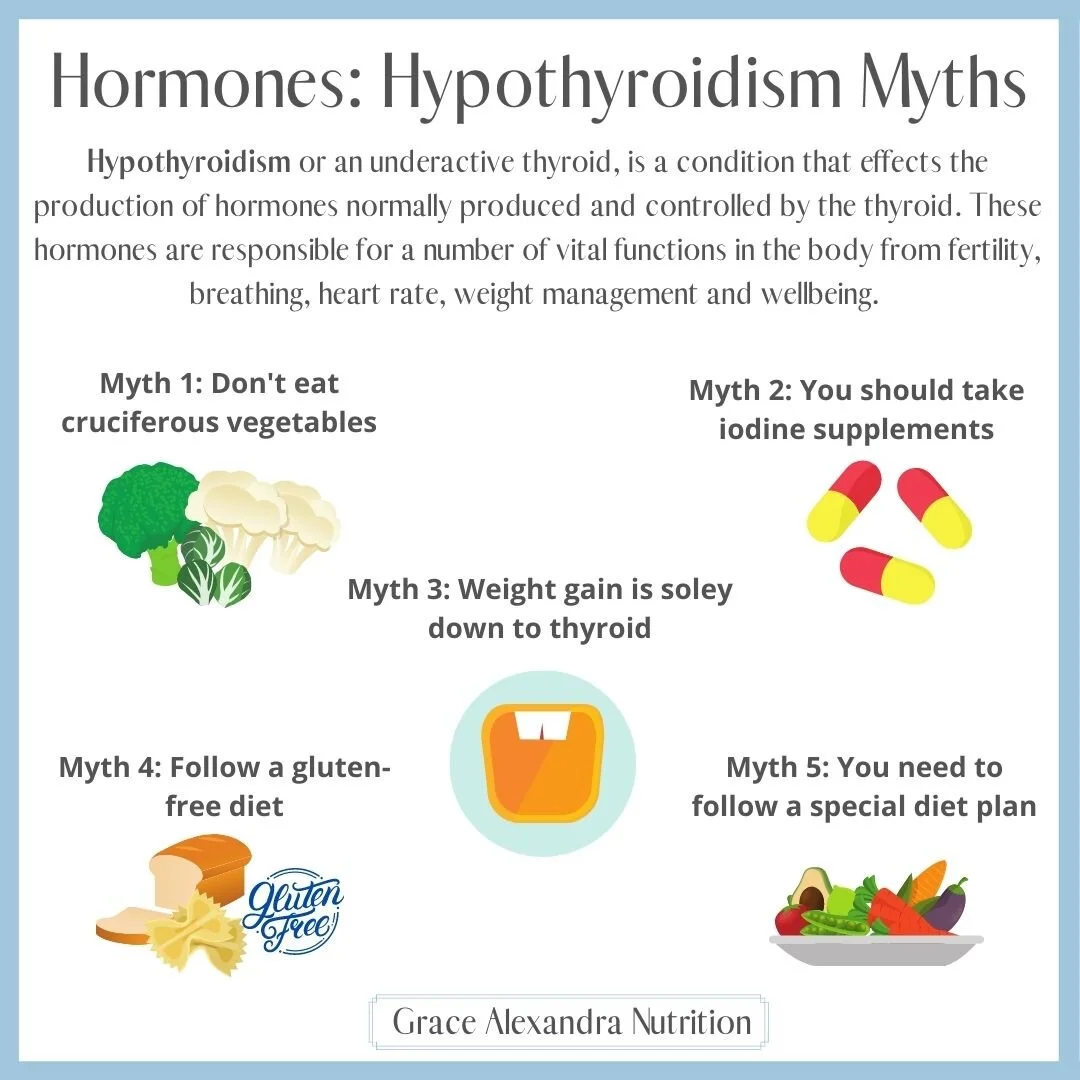Myth Busting: Hypothyroidism
Hypothyroidism or an underactive thyroid, is a condition that effects the production of hormones normally produced and controlled by the thyroid. These hormones are responsible for a number of vital functions in the body from fertility, breathing, heart rate, weight management and wellbeing.
Yet like any condition that has a number of management tools, there are also a plethora of myths that surround it. I have a personal interest in thyroid health and from my own experiences with managing the condition and I have uncovered a number of myths that seem to get a lot of airtime.
Myth No. 1: You can’t eat cruciferous vegetables.
Cruciferous vegetables such as broccoli, cauliflower and brussel sprouts have been thought to interfere with how the thyroid produces iodine, a crucial mineral for hormone production via the thyroid. However, in moderation they are an incredibly healthy addition to a diet, with excessive and unrealistic amounts needing to be consumed to cause disruption.
Myth No. 2: You should take iodine supplements.
Although a vital mineral for a healthy functioning thyroid; in the developed world, iodine is fortified in salt, cereals and milks meaning our western diets tend to be pretty well catered for. Taking additional iodine in can in fact cause more harm than good, if not prescribed via your health professional, creating an uneven balance the other way.
Myth No. 3: Follow a gluten free diet.
Ah, that little devil known as GLUTEN. The evidence for following a gluten free diet protocol is limited and inconclusive. The suggestion began with the theory of linking thyroid disease with celiac disease, a separate autoimmune condition, which can be managed via a GFD.
I myself, trialled this, with little positive effect; some studies conclude that those reducing gluten also intern reduced refined carbohydrates and sugars, and become more health seeking, providing the positive changes to health, not the removal of gluten itself.
Myth No. 4: Weight gain is solely from hypothyroidism.
Weight gain or stubborn weight loss does have association with an underactive thyroid but it’s typically only 5-7 pounds and related to the hormone TSH. Additional, significant weight gain beyond this range can be managed though a healthy diet and exercise.
Myth No. 5: People with thyroid disorders need to be on special diets.
There are certain vitamin and minerals, along with a balance of macronutrients which aid in the management of thyroid disorders but there is no particular diet, beyond one rich fruit, veg, lean proteins and healthful fats that is more beneficial than the other, broadly speaking. Diet alone will not cure thyroid disease.


